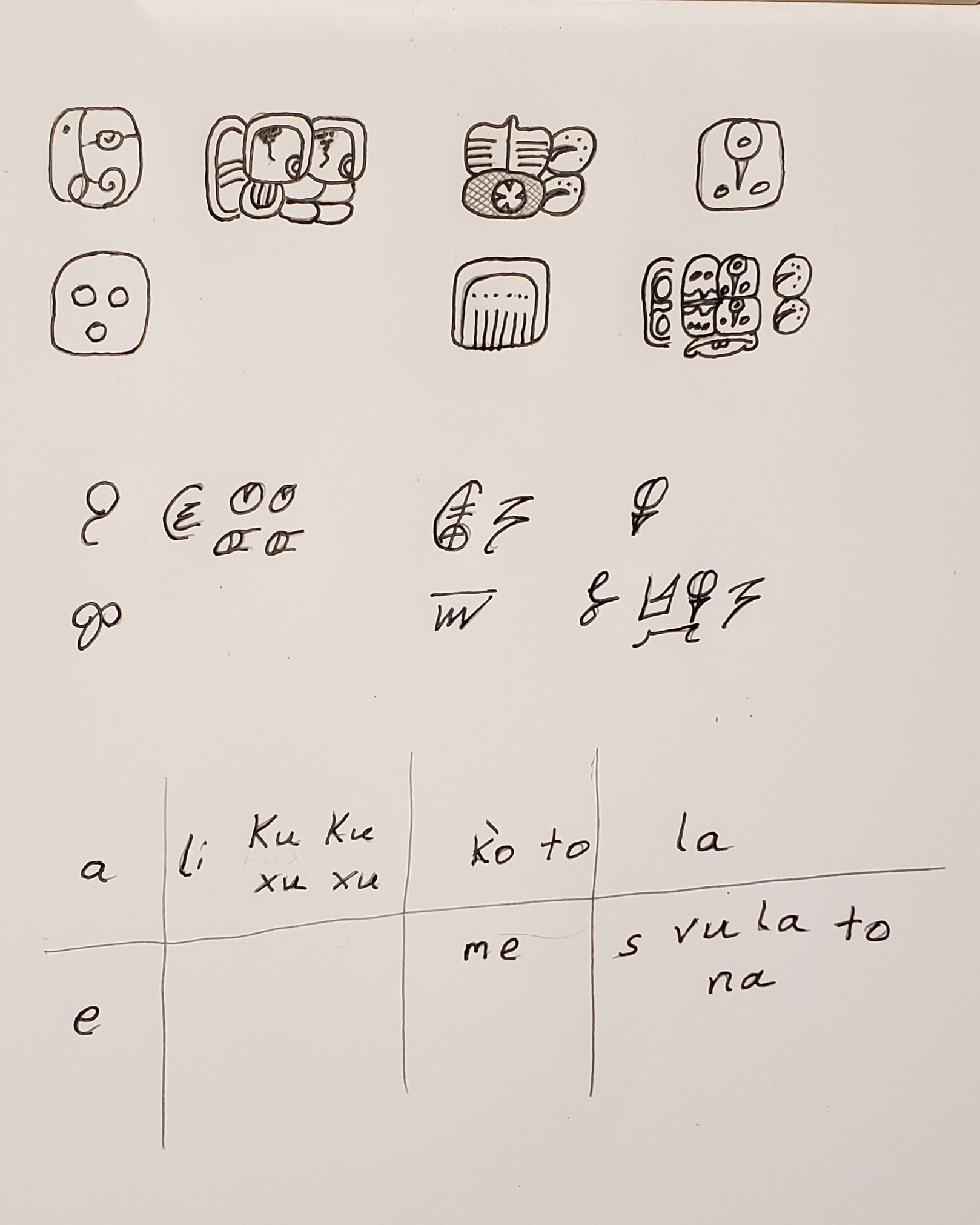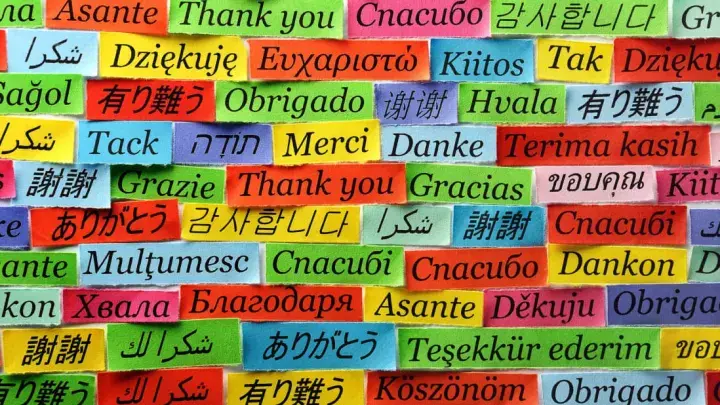Note: This is a work in progress and just a place holder for jotting my thoughts down.
Disclaimer: This should not be viewed as being a legitimate source of information, and just as something fun (and I do find it fun, 😊 ). As well as I am getting older, and my hardware is fairly outdated, and the programmers are a joke. So expect a lot of this to be the mere musings of a madman.
I will be updating this, eh, as much as I can. Anyway, let’s do this thing.
I have had this idea of writing Tzotzil (as it’s the only Mayan dialect I know well enough) with the Mayan characters, and the following are the rules that I am attempting to adhere to.
Basics
- Abide as much as possible with known Mayan rules and knowledge of their writing.
- Standardize and simplify the characters as much as possible as if they have continual use into a college setting, internet chatroom setting, written novels, mathematical texts, technical documentation, or children passing notes in grade school.
- If the need arises to create a character, use only what is known.
(And I’ve lost my train of thought for the moment. Ok, at least I got this part started).
What I’m working on at the moment is writing down the lyrics to Vayijel’s “Kux Kux”.

Top: Is a fancier writing and closer to the original Mayan.
Middle: Is a more simplistic shorthand which I am attempting to further simplify the codices written forms.
Bottom: Is a transliteration of the characters used.
Non Modified Characters
a, li, ku, to, la, e, me, na.
Modified Sounds of Known Mayan Characters (That follow Mayan rules).
- vu <= huun (Huun is the Yucatec word for paper, which is vun in Tzotzil).
- s <= u (u is the third person pronoun in Yucatec, and since there are several characters for the sound u, I repurposed one of those characters for s, which is the third person pronoun in Tzotzil).
Modified Characters of Known Mayan Characters (That do not follow Mayan rules).
- xu <= nuuk (I have found a ‘xu’ character in my “The New Catalog of Maya Nieroglyphs Vol. 2”, but haven’t implemented it as of yet).
- Since ku is spelled twice, I added an extra tail onto the character xu to reduplicate it across both ku characters.
- k’o <= o embedded with the letter k’i.
The final word “svulanot”, is spelled “s vulan[a] to” with “s” and “to” as affixes separated by a space to the verb vulan[a], but this may change once I start making it possible to write these characters much smaller (as should be for written novels, text books, etc).
(Ok, I’ve spent what little brain power I’ve had…Man, I hope I can remember this…I really really enjoy this kind of thinking, heh).
(Also, if ya’ll have any questions, just ask. Maybe it will help this aging mind to concentrate a bit better…Anything is possible, 🤣 ).


Might add this image at least til I can elaborate more on it. These are some characters I modified for the glottalized consonants k’, t’, p’, ch’, and tz’. Since a lot of these are not known from classical Mayan texts, I’ve embedded the characters k’in, ch’a, t’u, pa, and a small part of tz’a into the vowels a, e, i, o, u. Now, I may remove some of these (as Tzotzil doesn’t have that many words with t’, and there are other ways/rules of writing them, but for the moment it’s what I have).
In the above image, you’ll see there are two characters for the sound ch’u, that’s because the first set (main sign & affix) are following my rules, u embedded with ch’a. The second set are the more likely candidates to be used as those characters…erm…Don’t know the appropriate term to use, but they are a huge part of the religious speech of both Mayan classical and Catholic present. K’ul (yucatec, Lacanton, etc), something like holy, sacred, spirit, etc, which is ch’ul as well in other dialects (Ch’ol, Tzotzil, Tzeltal, etc).
Kosher! I found the Mayan Hieroglyphics Database and just a little digging around I can see that my thinking on this is not that far fetched as I had felt.
So how I was planning on standardizing the embedding of sounds is Mayan, and that is what I will stick with. Preceding sound is embedded within the succeding sound. (IE initial sound is embedded within the final sound). (That is lu+ku will be pronounced as kul, and chi+k’in will be k’ich and not chik’in or chik’).
However, I don’t have any plans on writing similar to how k’inich is written, with the middle sound being under the embedding sounds like in the picture.